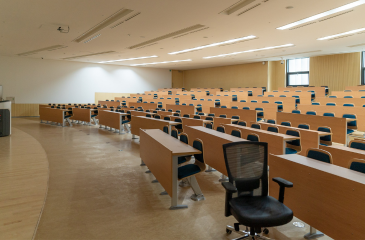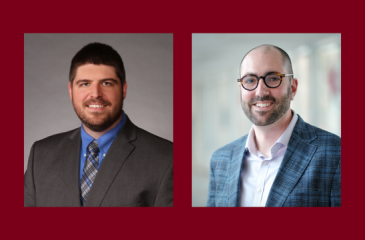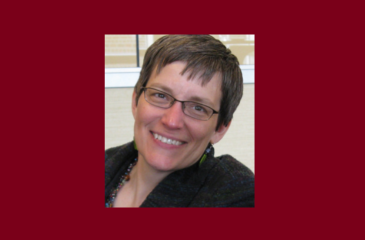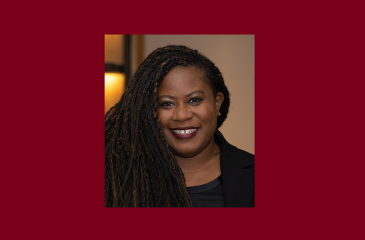This post is part of our "Bioethics in Focus" series featuring experts from the Center for Bioethics community.
I am a professor who has pre-existing medical conditions (some from birth) that put me at increased risk for complications should I contract SARS-CoV-2 -- the coronavirus or COVID-19. I am also a pharmacist who continues to spend a great deal of time learning about COVID-19. And finally, I am a pharmacy professor who teaches Ethics.
Gratefully, I look forward to returning to campus this fall, fully vaccinated. However, my excitement is tempered by an ethical dilemma between how we balance self-regard and regard for others when it comes to stopping the spread of COVID-19. While I am relieved that Minnesota is not legislating against vaccination or mask mandates, at the time of this writing, 12 states have enacted legislation banning vaccination mandates for students to attend school. Additionally, several states have issued Executive Orders or passed legislation prohibiting public schools from mandating the wearing of masks. In states that have banned such mandates, elected leaders speak of relying on people to take personal responsibility. This conflicting policy landscape presents an opportunity to reflect on personal responsibility as students, faculty and staff prepare to return to college and university campuses.
Vaccination requirements in public school settings are not new. Before attending school at any level, students have long been required to provide proof of vaccination against many diseases such as measles, mumps and rubella. And health professions students are generally also required to provide proof of vaccination against other infections such as influenza before going to clinical sites. But the COVID-19 vaccine is being treated differently. The flu vaccine has been fully licensed (approved) by the U.S. Food and Drug Administration (FDA). However, until the Pfizer vaccine was approved on August 23rd, the FDA allowed COVID-19 vaccines to be used only under an Emergency Use Authorization. Although the general safety and efficacy of COVID-19 vaccines has been clearly demonstrated, the FDA still considers COVID-19 vaccines to be “investigational” until the licensing process is fully completed. Legally it is easier to require that people receive approved vaccines than to require that they receive a vaccine only authorized for use in response to a specific emergency.
It should be noted, now that a COVID vaccine has been licensed by the FDA, the University of Minnesota has mandated that students be vaccinated against SARS-CoV-2 unless they have a medical or religious exemption. However, according to several national news outlets, some students are seeking phony vaccination documentation in light of the some 675 colleges or universities that have instituted a vaccination requirement for their students. This suggests the projected safety of a vaccine mandate may be in jeopardy. But as a professor, I am not permitted to ask my students about their COVID vaccination status according to a communication from the University of Minnesota President Joan Gabel on June 14, 2021 stating: “The University is committed to protecting your privacy. The University will not ask individuals to disclose their vaccination status to their fellow students, instructors, or coworkers."
With these factors in mind, the major ethical question that arises in returning to campus in the COVID era is, “When does regard for others trump regard for self?” Regardless of the mandates and privacy considerations, should a college student who has no medical or religious restrictions be allowed to remain unvaccinated against COVID-19 solely because they do not want to receive the vaccine? Or do these students have an obligation to get vaccinated to reduce their possibility of becoming infected with COVID-19 and infecting others on campus, particularly classmates who cannot receive the vaccine for medical reasons or religious reasons?
The current vaccines against COVID-19 have been found to be somewhat less than 90% effective, meaning that a fully-vaccinated person still has slightly more than a 10% chance of developing a COVID-19 infection if exposed. As of July 25, 2021, Minnesota recorded more than 9600 cases of “breakthrough” COVID-19 infections, people who had been fully vaccinated testing positive for the virus. More than 680 of these people ended up in the hospital, and 69 died from COVID-19. Again, these were people who were fully vaccinated. If this is the damage that can be done to vaccinated people, why are some schools risking a return to campus without a vaccination mandate?
For me, the writings of 19th century British philosopher John Stuart Mill help address this balancing act between self-regard and regard for others. In his essay On Liberty, Mill notes that people have the right to have opinions and to disagree with everyone. However, Mill further notes that a person’s right to exercise these basic liberties is limited by the harm principle. That is, it is ethical to restrict individual liberties to prevent harming others.
Applying Mill’s concepts to this dilemma, a student is entitled to their own opinion regarding vaccination against the SARS-CoV-2 virus, and can oppose mandates. However, those rights are overridden by teachers’ rights (and responsibility) to protect themselves and others in their classroom from being exposed to the virus. If a student shows up to class having symptoms of a cold or the flu (many of these same symptoms may also be caused by COVID-19), teachers should have the authority to ask that student about their vaccination status or COVID-19 testing results.
It is true that this approach violates the student’s right to privacy. However, this invasion of an individual’s privacy is outweighed by the teacher’s greater obligation to prevent potential harm to others in the classroom, particularly those who have documented health or religious reasons for not receiving a COVID vaccination.
As a teacher, I have duties to all of my students in the classroom. The greatest of these duties is to create and maintain a safe learning environment, which includes physical safety as well as a safe place to exchange differing opinions. Faculty must be given the authority to be able to question a student’s vaccination status - the stakes are too high not to.
I implore students, and faculty and staff, who are hesitant to get vaccinated against COVID-19 to please rethink their current position, which in effect protects Me (the individual) at the expense of protecting We (the community).



